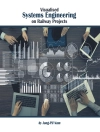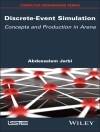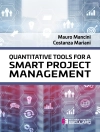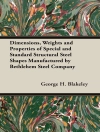This book gathers selected papers presented at International Conference on Sentimental Analysis and Deep Learning (ICSADL 2022), jointly organized by Tribhuvan University, Nepal and Prince of Songkla University, Thailand during 16 – 17 June, 2022. The volume discusses state-of-the-art research works on incorporating artificial intelligence models like deep learning techniques for intelligent sentiment analysis applications. Emotions and sentiments are emerging as the most important human factors to understand the prominent user-generated semantics and perceptions from the humongous volume of user-generated data. In this scenario, sentiment analysis emerges as a significant breakthrough technology, which can automatically analyze the human emotions in the data-driven applications. Sentiment analysis gains the ability to sense the existing voluminous unstructured data and delivers a real-time analysis to efficiently automate the business processes.
Jadual kandungan
Ranking roughly tourist destinations using BERT based semantic search.- Discerning the Application of Virtual Laboratory in Curriculum Transaction of Software Engineering Lab Course from the Lens of Critical Pedagogy.- Drought Prediction using Recurrent Neural Networks and Long Short-Term Memory model.- A Deep Learning Framework for Classification of Hyperspectral Images.- Improved Security on Mobile Payments Using IMEI Verification.- Analytics and Data Computing for the Development of the Concept Digitalization in Business and Economic Structures.- Smart Door Locking System using Io T -A Security for Railway Engine Pilots.- Designing and Implementing a Distributed Database for Microservices Cloud-Based Online Travel Portal.- A comparative study of a new customized bert for sentiment analysis.- Twitter Sentiment Analysis Using Naive Bayes Based Machine Learning Technique.- Rainfall Forecasting System Using Machine Learning Technique and Io T Technology for a Localized Region.- Infrastructure as Code (Ia C): Insights on Various Platforms.- Breast Cancer Prediction using different Machine Learning Algorithm.- A Proposed System for Understanding the Consumer Opinion of a Product Using Sentiment Analysis.- Comparative study of Machine Learning and Deep learning for Fungi classification.- Personality as a predictor of Computer Science Students’ Learning Motivation.- Prediction and analysis of liver disease using extreme learning machine.- Deep-learning based quality assurance of silicon detectors in Compact Muon Solenoid experiment.- An Effectual Analytics and Approach for Avoidance of Malware in Android using Deep Neural Networks.- A One-Stop Service Provider for Farmers Using Machine Learning.- Fuzzy Logic Based Control of SEPIC Converter for Vehicle to Grid Application.- Social media mining to detect mental health disorders using Machine learning.- Using Deep Learning Models for Crop and Weed Classification at Early Stage.- Face Mask detection and social distancing using Machine Learning with Haarcascade algorithm.
Mengenai Pengarang
Dr. Prof. Subarna Shakya is currently a Professor of Computer Engineering, Department of Electronics and Computer Engineering, Central Campus, Institute of Engineering, Pulchowk, Tribhuvan University, Coordinator (IOE), LEADER Project (Links in Europe and Asia for engineering, e Ducation, Enterprise and Research exchanges), ERASMUS MUNDUS. He received MSc and Ph D degrees in Computer Engineering from the Lviv Polytechnic National University, Ukraine, 1996 and 2000 respectively. His research area includes E-Government system, Computer Systems and Simulation, Distributed and Cloud Computing, Software Engineering and Information System, Computer Architecture, Information Security for E-Government, and Multimedia system.
Dr. Ke-Lin Du has been a research scientist at Center for Signal Processing and Communications, Department of Electrical and Computer Engineering, Concordia University since 2001, where he became an Affiliate Associate Professor in 2011. He received a Ph D degree in electrical engineering from Huazhong University of Science and Technology in 1998. He has published 5 textbooks, 50 papers, and holds 6 granted U.S. Patents. Presently, he is on the editorial boards of IEEE Spectrum Chinese Edition, IET Signal Processing, Circuits Systems & Signal Processing, Mathematics, and AI. He served as program chair of dozens of conferences. His research area includes wireless communications, signal processing, and machine learning. He has been a Senior Member of the IEEE since 2009. Dr. Klimis Ntalianis is a full professor at the University of West Attica, Athens, GREECE. He has worked as Senior Researcher in multi-million research and development projects, funded by the General Secretariat of Research and Technology of Greece (GSRT), the Research Promotion Foundation of Cyprus (RPF), the Information Society S.A. of Greece and the European Union. He is also serving as a Senior Project Proposal Evaluator for GSRT, RPF, the European Union, the Natural Sciences and Engineering Research Council of Canada and the National Science Center of Poland. In parallel he is a member of several master theses and Phd evaluation committees in Greece, Cyprus, Germany and India. He is also serving as promotion evaluator for Saudi Arabia and academic staff. He has served as general chair in several conferences (IEEE etc.). Dr. Ntalianis has published more than 160 scientific papers in international journals, books and conferences. His main research interests include social computing, multimedia analysis and information security.












